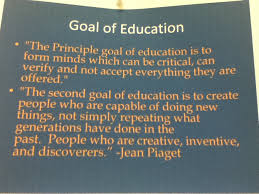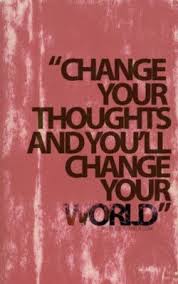Stuff goes wrong in our personal lives. Stuff goes wrong in our communal living. Stuff goes wrong in America. Stuff goes wrong in the world. From domestic conflict and economic trauma to a world that still tries to fix things with guided missiles, life is not what it could be.
So what happens? Instead of working on fixes, we play the blame game. “She made me do it.” “My boss won’t give me a raise.” “My doctor gave me the wrong medicine.” “My kids won’t do what I tell them.” Blame. Blame. Blame. It’s never my fault, or up to me to change or fix it.
We quickly move to blaming the government for not making our lives easier, each with her or his own personal priorities. In this election season even the majority of candidates don’t have anything good to say about the very government of which they are a part. Whether it’s the Affordable Care Act, Immigration, Jobs, ISIS, Ebola, or the Economy, one hears claims daily that the government can’t get it right. Worse than that, a black President can’t get it right.
Instead, we wallow in our own personal “crises.” We don’t become accountable for our own lives, we blame the government for our problems. And, in our blaming, we fail our citizenship test. We pretend that by protesting we have no obligation to make our society work better. It’s easier to blame than it is to be part of solutions. Avdhesh Arya, a citizen blogger, gets it..
Theologically, we are behaving like God created an imperfect world and that there is nothing we can do about it. Not so. In the very first chapter of the Hebrew Bible, vs. 31, we read: “God saw everything that he had made, and indeed, it was very good. And there was evening and there was morning, the sixth day.”
Part of this goodness is that humans have the chance in life to grow beyond their sinfulness, to overcome evil, to become more fully human, and to create a new humanity. Obscure to most Christians is an early theologian named Irenaeus, who had a most productive view of Salvation. Rather than seeing God as rescuing people at the end of their lives, what most Christians assume is salvation, Irenaeus saw Salvation as being caught up in God’s work for the future good of humanity. Those who are saved by God are alive and engaged in transforming a world made imperfect by human behavior. Christ is the inauguration of a new humanity. Through Jesus, God seeks to free humanity from Satan’s (evil’s) grasp.
Come on, who designed the government? Who elected the officials? Who is responsible for changing the structure that holds our common life together? YOU ARE! WE ALL ARE!
So a great question for today is: What does God want us to do about tomorrow?
Essentially, we have two options. One is to freak out into religious, political and economic fundamentalism, which calls us to do more of the same, only do it harder. The other is to faithfully take on, in concert with like-minded folk, the task of recognizing and working for the image of God in all of humanity and improving the social structures that allow human community.
To be a fundamentalist in ones thinking and behavior is to go backward from God’s point of view. And, by working harder to make our lives and our government more like it used to be, which we fantasize as having been good, we get even more of what diminishes our lives.
So far, the American majority, by a squeak, has gone fundamentalist in politics because so many people believe that power for themselves, to the exclusion of millions of others, is the only salvation for their lives.
This is living in YESTERDAY.

Conversely, there is the opportunity to live in TOMORROW. In addition to managing the “stuff” of our daily lives, all Americans, Christians and others, are called to live into the future. This means we need to astutely see possibilities of life as we’ve never lived it before. The 21st century is already dramatically unlike anything humankind has ever experienced.
The old order in the middle-east is disintegrating. Democracy is sneaking up its head in China. Africa could soon sit at the table. Guided missiles are becoming irrelevant. Even the Roman Catholic Church is toying with liberation theology.
The internet, high tech age has radically changed the game forever, both for good and for ill. Future social, financial, environmental, governance and medical issues must be solved on an international basis.
So, what do you want to fix? What turns your creative crank as you peak into the future?
- An expanded social safety net that assures universal health for the nation’s citizens, care for the infirm, support for the indigent and an assured decent quality of life for the elderly?
- Dealing with worldwide economics where poverty starves millions of children unto death?
- Facing white racism from the underside or from on top, depending on your race?
- Stewardship of the environment; combating climate change; protecting open space, moving past fossil fuels; and better understanding and control of man-made intrusions into our biology and environment?
- Election of candidates to public office who are truly committed to finding new solutions to emerging problems, without blaming each other, the President or the judiciary?
- Reducing gun violence and limiting concealed carry rights?
- Creating a more just refugee system, and acknowledging the need for national sacrifice for a peaceful world, respecting other political, economic, social and civil systems?
- Facing the reality that war no longer solves anything?
- Limiting state and national testing standards and expanding primary and secondary educational choices toward meeting the different learning styles, creative potential, and imaginations of our kids?
Try to imagine changes for tomorrow. Then lean into them. It’s God’s call to salvation!


